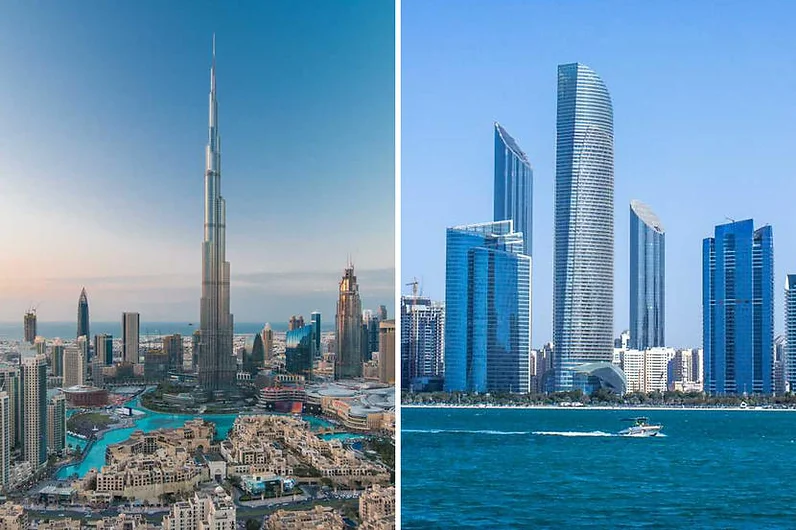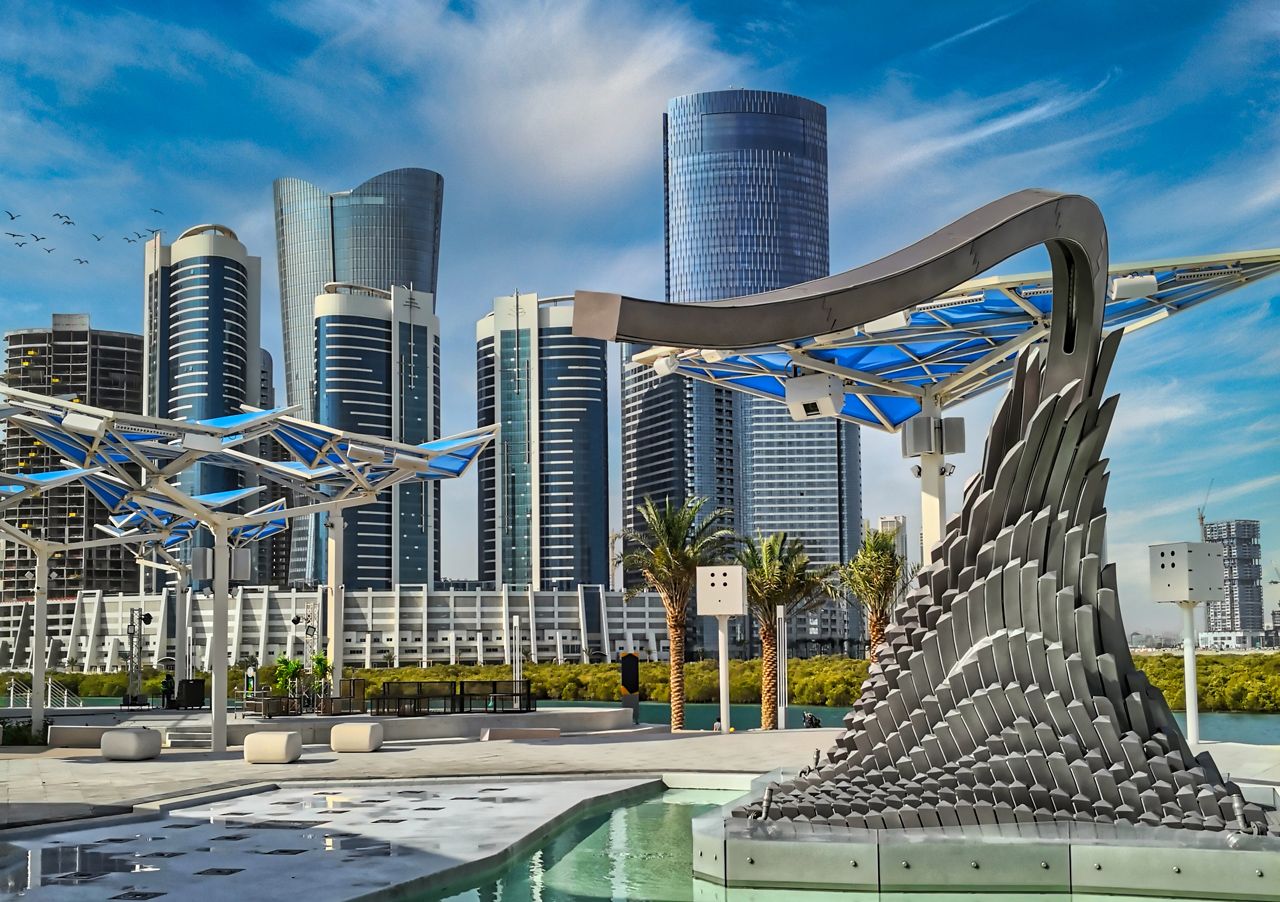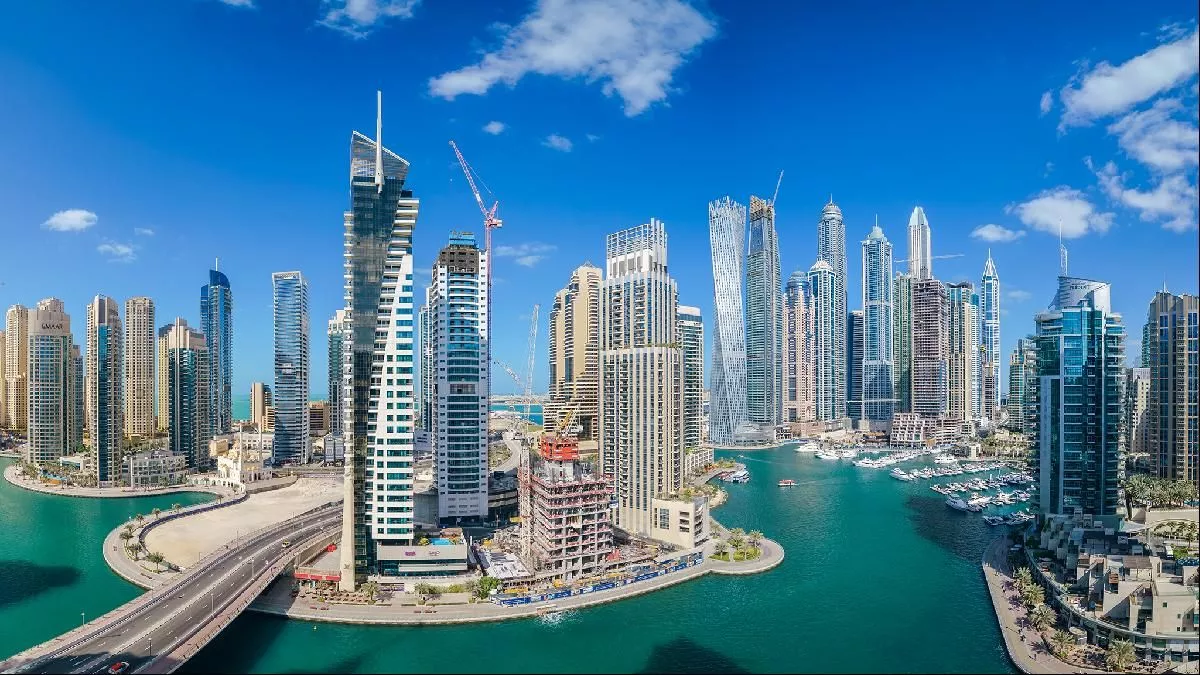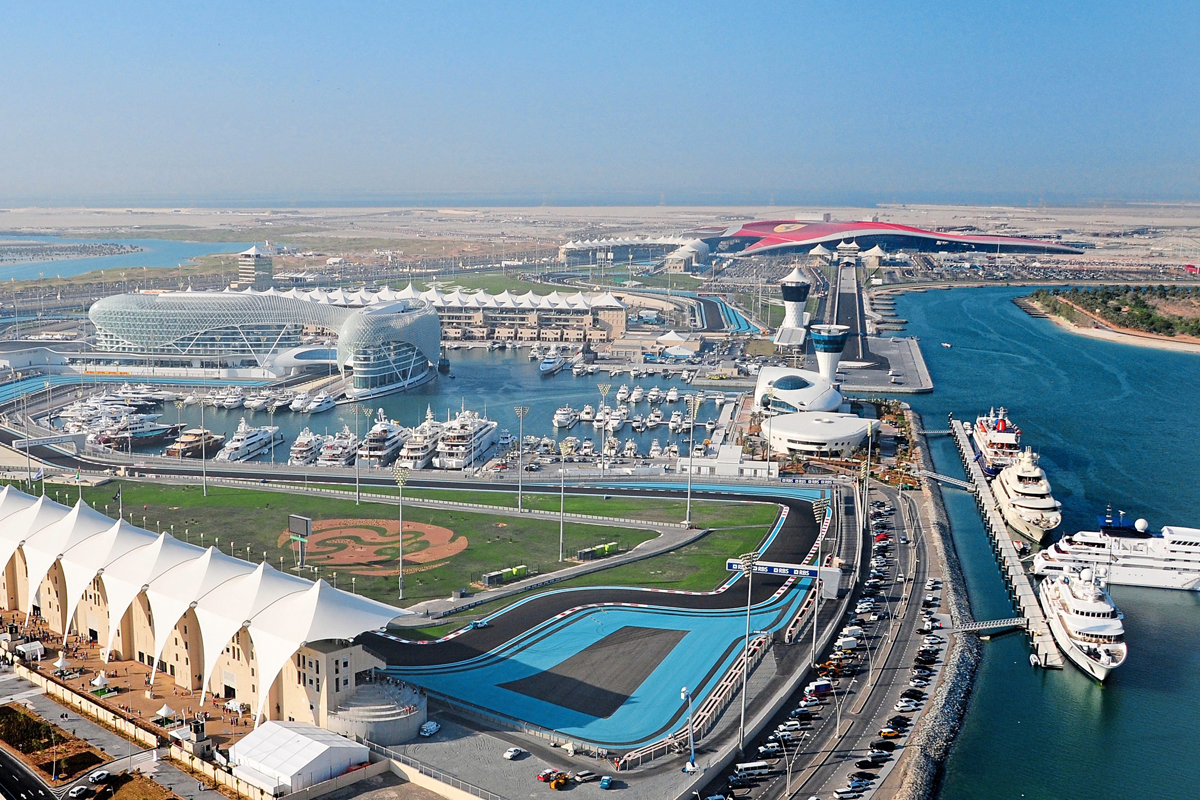
The United Arab Emirates (UAE) is a land of endless opportunities, and its dynamic real estate markets in Dubai and Abu Dhabi beckon investors from around the globe. These two cities, although sharing the same desert landscape, possess unique advantages that make them distinct investment destinations. In this comprehensive exploration, we will embark on a journey through these bustling emirates, comparing their economic outlook, population dynamics, government incentives, property landscapes, lifestyle offerings, and future growth prospects.

Economic Outlook and Stability
Dubai and Abu Dhabi, the crown jewels of the UAE, both boast robust economies with impressive GDP growth and enviable stability. However, a closer look reveals nuances in their economic structures. Dubai, the flamboyant sibling, relies heavily on tourism and trade, contributing to its well-diversified economic portfolio. On the other hand, Abu Dhabi, the capital of the UAE, places more emphasis on oil and gas exports, making it a prominent player in the energy sector. The key takeaway here is that both cities exhibit economic strength, but their sources of prosperity differ.
Population Growth and Demand for Housing
In the realm of population growth, Dubai emerges as the frontrunner. With its vibrant lifestyle and reputation as a global hub, Dubai has attracted a larger and faster-growing population. This influx of residents fuels a relentless demand for housing, particularly in the affordable and mid-market segments. As investors seek opportunities in the real estate market, Dubai’s surging population becomes a compelling factor in the decision-making process.
Government Incentives for Real Estate Investors
The UAE government extends a welcoming hand to real estate investors in both Dubai and Abu Dhabi. However, the extent of generosity varies. While both cities offer enticing incentives such as tax exemptions and visa benefits, Abu Dhabi often takes the lead in this realm. Investors in the capital may find themselves enjoying more substantial incentives, adding an extra layer of appeal to their ventures.
Property Prices and Rental Yields
Property prices and rental yields are pivotal considerations for real estate investors. In Dubai, property prices tend to be higher compared to Abu Dhabi, reflecting its status as a global metropolis. However, this is counterbalanced by the fact that Dubai offers higher rental yields, potentially providing investors with more attractive returns. It’s a trade-off that investors must carefully weigh based on their financial objectives.

Off-Plan Property Sales
Off-plan property sales, a popular investment avenue, find their zenith in Dubai. The city’s fervent development market, with a multitude of off-plan projects, lures investors with the promise of capital appreciation. This appeal can be attributed to Dubai’s reputation as a thriving urban landscape continually reinventing itself.
Freehold vs. Leasehold Property
Dubai offers a broader spectrum of freehold properties compared to Abu Dhabi. Freehold properties grant investors absolute ownership, providing them with a more secure footing in the market. Leasehold properties, prevalent in Abu Dhabi, offer temporary ownership rights for a specified period. The choice between freehold and leasehold hinges on investors’ long-term objectives and risk appetite.
Luxury Real Estate Market
Dubai and Abu Dhabi both have luxury real estate markets, but they cater to different sensibilities. Dubai shines as a global epicenter of opulence, boasting some of the world’s most extravagant and iconic real estate. Abu Dhabi, while no stranger to luxury, maintains a more discreet and understated ambiance. Investors seeking a touch of grandeur have choices tailored to their preferred style.

Lifestyle and Amenities
The lifestyle and amenities on offer in Dubai and Abu Dhabi are reflections of their distinctive characters. Both cities deliver a cosmopolitan experience replete with shopping malls, gourmet restaurants, and entertainment venues. Yet, Dubai, known for its vibrant and diverse culture, often takes the lead in exuberance, creating an environment that pulses with energy.
Tourism Potential
Dubai and Abu Dhabi both beckon tourists, albeit to varying degrees. Dubai reigns supreme as a global tourist destination, welcoming millions of visitors annually to its iconic landmarks and extravagant attractions. Abu Dhabi, while equally captivating, garners a more modest share of the tourism spotlight. For investors, understanding the tourist landscape can influence their decisions in these cities.
Infrastructure and Connectivity
Dubai and Abu Dhabi proudly exhibit world-class infrastructure and connectivity. Yet, Dubai’s cosmopolitan nature and interconnectedness set it apart. Its global connectivity and seamless integration across industries make it an enticing prospect for investors seeking a city at the forefront of innovation and development.
Future Growth Prospects
Both Dubai and Abu Dhabi harbor ambitious growth plans that shape their futures. Dubai envisions itself as a global hub for tourism, trade, and finance, aiming to become a beacon of prosperity in the region. Abu Dhabi, in contrast, focuses on nurturing a knowledge-based economy, diversifying away from its oil and gas roots. These strategic directions underscore their respective growth prospects, offering investors a glimpse into their long-term potential.
Dubai’s Off-Plan Developments vs. Abu Dhabi’s Ready-to-Move-In Properties
Dubai’s real estate landscape is punctuated by a wealth of off-plan developments, enticing investors with the prospect of discounts and capital appreciation. Abu Dhabi, while not as prolific in this regard, compensates with a selection of ready-to-move-in properties, catering to those seeking immediate ownership.
Dubai vs. Abu Dhabi: A City of Dreams vs. a City of Heritage
Dubai and Abu Dhabi wear their personalities proudly. Dubai, often referred to as a city of dreams, boasts a skyline adorned with iconic skyscrapers and a reputation for luxury and glamour. In contrast, Abu Dhabi, a city of heritage, preserves a rich cultural tapestry and places a strong emphasis on sustainability. The choice between these two cities goes beyond investment preferences; it reflects a lifestyle choice.

Which City is Right for You?
In the grand tapestry of real estate investment, the best city for you hinges on your individual circumstances and investment aspirations. If you yearn for a high-growth market brimming with cosmopolitan allure, Dubai may align with your ambitions. On the other hand, if you seek a more traditional and conservative investment landscape coupled with generous incentives, Abu Dhabi may offer the ideal setting.
The dynamic statistics of Dubai and Abu Dhabi’s real estate markets are a testament to their vitality.
-
Dubai’s average property price stands at AED 1,573 per square foot, while in Abu Dhabi, it is AED 1,327 per square foot, as per Bayut.com.
-
In June 2023, Dubai recorded 9,876 residential property sales transactions, marking an impressive 18.8% year-on-year increase. During the same period, Abu Dhabi saw 4,321 residential property sales transactions, reflecting a notable 15.3% year-on-year rise.
-
Rental yields in the UAE showcase healthy returns, with Dubai averaging 5.5% and Abu Dhabi 5.2%, according to CBRE.
In the enthralling tale of Dubai vs. Abu Dhabi, the denouement remains unwritten. Both cities beckon with unique promises and investment prospects. It’s a narrative where the choice is deeply personal, influenced by your financial goals, risk tolerance, and lifestyle preferences.
As you embark on your investment journey, these statistics serve as compass points, guiding you toward the city whose prospects align most harmoniously with your investment goals. Dubai and Abu Dhabi await, each with its unique tapestry of opportunities, ready to script your real estate success story.



Leave a Reply